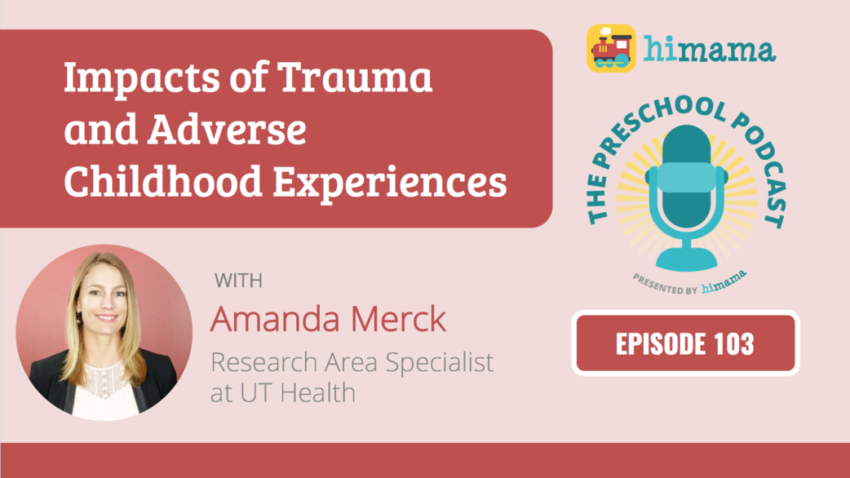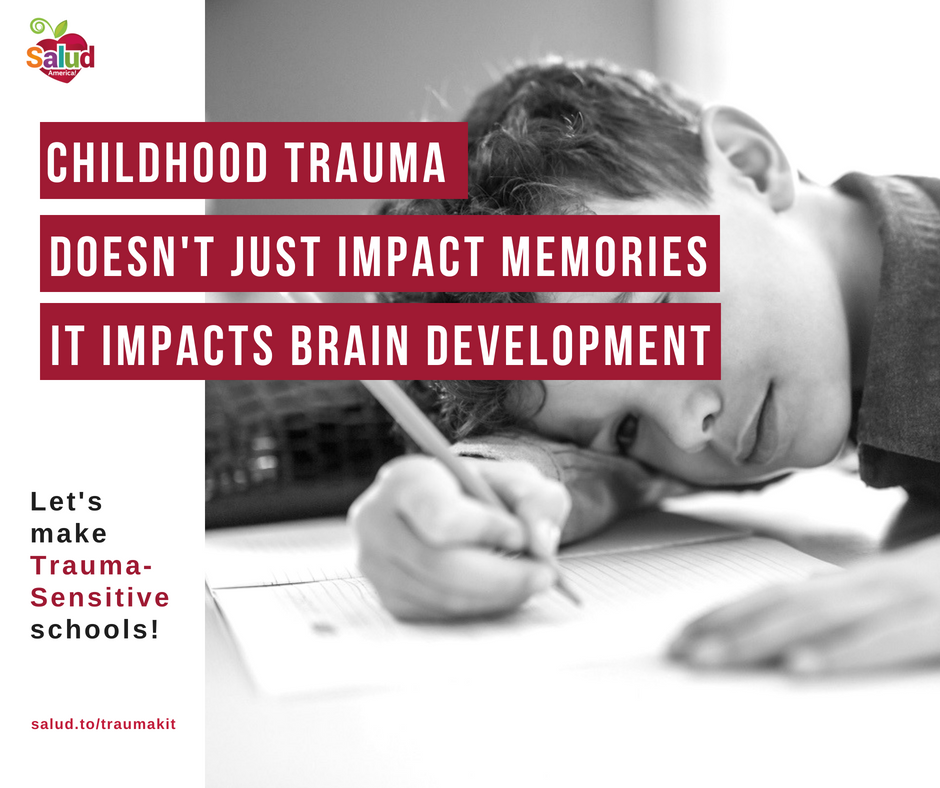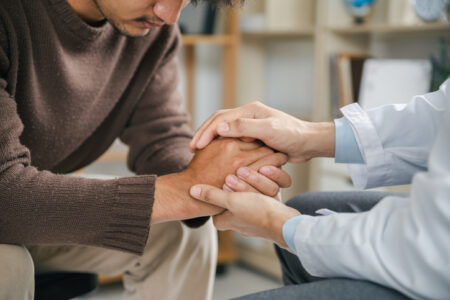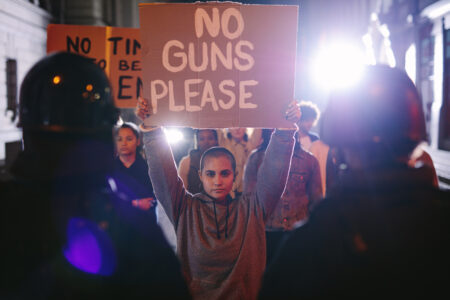
Share On Social!
Our own Amanda Merck recently joined HiMama’s The Preschool Podcast to talk about addressing childhood trauma in early childcare and schools to build better futures for Latino and all children.
HiMama, which offers tools to help educators improve childhood development, hosts The Preschool Podcast every Tuesday with its co-founder and CEO Ron Spreeuwenberg and a guest.
Merck, who curates content for Salud America! on early childhood development, joined podcast episode #103, Impacts of Trauma and Adverse Childhood Experiences, on July 3, 2018.
Merck spoke about the critical formative years from 0 to 5 in a child’s development and how childhood trauma, like abuse and poverty, affect a child’s body and brain.
However, early childcare educators are rarely trained to deal with traumatized children.
“We want to make sure everyone dealing with kids understands this because it could be them, it could be that interaction of just creating safety and then the brain is way more ready to learn,” Merck said.
Latinos and Childhood Trauma
 Latino children face childhood trauma and are at risk of not getting the proper care, services and education they need, which impairs their social and emotional development, academic achievement, and overall health and wellbeing, according to our Salud America! research review.
Latino children face childhood trauma and are at risk of not getting the proper care, services and education they need, which impairs their social and emotional development, academic achievement, and overall health and wellbeing, according to our Salud America! research review.
On the podcast, Merck and Spreeuwenberg talked about the importance of positive adult-child relationships in addressing childhood trauma.
“One of the huge themes that I hear through the podcast is how important relationships are,” Spreeuwenberg said. “Yes, curriculum is important and yes, education and learning is important, but the relationships are just so critical.”
Merck agreed, calling positive relationships “one of the most important buffers for childhood trauma and building resiliency.”
This makes educators a big piece of the child trauma puzzle.
“It may not be the home environment that is the source of the adversity or the trauma,” Merck said. “It might be the school setting, with potential discrimination or biases, and that could be what is setting these children in a state of feeling unsafe and in a survival mode where they are unable to learn.”
Thus, it is vital to take a trauma-sensitive approach in early childcare and schools, Merck said.
The new Salud America! “Trauma Sensitive School Action Pack” is a free guide with coaching to help school personnel talk to decision-makers, build a support team, craft a system to identify and support traumatized students, and more!
Get the Action Pack!
About The Preschool Podcast
In 2012, a group of committed fathers, mothers, daughters, sons, uncles and aunts started HiMama for parents, home care providers, and childcare center directors, owners and teachers.
Based on extensive research and interviews with early childhood educators, HiMama aims to empower early childhood educators with affordable tools that enable them to improve developmental outcomes for the children they work with while educating parents about the importance of their work.
What’s more is they are a Certified B Corporation®.
For HiMama’s The Preschool Podcast, topics include: The Child Migrant Crisis and the Impact on Social-Emotional Development; Changing our Mindset on Suspensions and Expulsions; and Pushing the Envelope with Professional Development.
Listen to Merck’s episode for free, share with others, or discuss on Facebook.
By The Numbers
28
percent
of Latino kids suffer four or more adverse childhood experiences (ACES).



